PENNSYLVANIA Self-Defense Law Explained by Attorney James Bonner
You are walking alone on a moonless night down a street in the heart of Philadelphia. Suddenly, three men come out of an alley and start walking briskly towards you. Your brain’s alarm system immediately cries out that you need to prepare for taking action against the three men. As one of the men begins to cock his arm back to throw a punch, your basic instinct is to ward off the attacker in self-defense by using a firearm.
This scenario begs the question: Does Pennsylvania law allow for the use of force in self-defense cases?
Do you have the Right to Defend Yourself in Pennsylvania?
Self-defense, in the name of personal protection, is widely accepted as the most important reason why American citizens own firearms. This means if you buy a gun for personal protection, you must take responsibility for knowing how to use the gun. In Pennsylvania, what are the legal consequences of using a firearm?
Let’s look at the provision of PA law that defines the use of self-defense.
§ 505. Use of force in self-protection.
(a) Use of force justifiable for protection of the person.
The use of force upon or toward another person is justifiable when the actor believes that such force is immediately necessary for the purpose of protecting himself against the use of unlawful force by such other person on the present occasion.
(b) Limitations on justifying the necessity for the use of force.
(1) The use of force is not justifiable under this section:
(i) To resist an arrest which the actor knows is being made by a peace officer, although the arrest is unlawful; or
(ii) To resist force used by the occupier or possessor of property or by another person on his behalf, where the actor knows that the person using the force is doing so under a claim of right to protect the property, except that this limitation shall not apply if:
(A) The actor is a public officer acting in the performance of his duties or a person lawfully assisting him therein or a person making or assisting in a lawful arrest;
(B) The actor has been unlawfully dispossessed of the property and is making a reentry justified by section 507 of this title (relating to the use of force for the protection of property); or
(C) The actor believes that such force is necessary to protect himself against death or serious bodily injury.
What Defines Self-Defense in Pennsylvania?
The first step towards learning about Pennsylvania self-defense statutes involves knowing the act of self-defense in PA is referred to as a justification defense. Justification means you claim the act of self-defense was intentional, not accidental. In other words, you were fully aware the act of self-defense was planned in advance. You did what you had to do what you needed to do to protect yourself from bodily harm.
According to PA law, conduct that is typically labeled as criminal is not defined as illegal, if the act in question was justified. Courts in Pennsylvania have for decades ruled that using force in self-defense cases is justified to “protect one’s life or limb or to save one’s self from great bodily harm.” Commonwealth v. Capalla, 322 Pa. 200 (1936) represents the case that established the self-defense precedent in Pennsylvania.
When Can You Use Self-Defense in PA?
Under PA law, the self-defense provision reads that the use of force is “justifiable when the actor believes that such force is immediately necessary for the purpose of protecting himself against the use of unlawful force by such other person on the present occasion.”
Here are four threat scenarios that justify the use of force in self-defense cases under Pennsylvania law:
• Death
• Rape
• Kidnapping
• Serious bodily injury
You typically cannot claim self-defense for a case when you had the chance to avoid a possible threat by retreating from the pursuer. However, the legal obligation to retreat is null and void in situations that are covered by Castle Doctrine or Stand Your Ground cases.
In Pennsylvania, you are not legally required to perform the following acts before using deadly force in a self-defense case:
• Issue a verbal warning
• Shoot one or more warning shots
• Warn the pursuer that you have a firearm on you
• Shoot to injure to deter violence
• Give the pursuer an opportunity to retreat
• Call 911 before or after using deadly force
Self-defense in Pennsylvania must be necessary and proportional. In PA, necessary is defined as “immediately necessary,” which translates to imminent. The use of deadly force can be used if a threat is about to happen. We have covered the principal reasons for self-defense, but what does “proportional” mean? For example, can you use deadly force against someone that threatens to rob you? The answer to that question is often left up to judges and juries, which is one reason why it is essential to consult with an experienced Pennsylvania attorney that has amassed years of litigating self-defense cases.
Self-defense must also be reasonable given the circumstances of an imminent threat. This is another reason to have the right legal counsel by your side in a self-defense case. The District Attorney’s Office and the criminal court system will consider the entire circumstances of your case to understand whether you have fulfilled
Pennsylvania self-defense requirements.
If you are considered a law-abiding gun owner (LAGO) under Pennsylvania law, you will most likely use a firearm only to defend yourself, not actively commit violence against another person. You should understand that if you are a LAGO, speaking with a law enforcement official, while you under incredible distress, can eliminate any effective defense implemented by an accomplished self-defense law attorney.
If you have any questions regarding the PA Self Defense Laws or if you would like to setup a Free Consultation, please call attorney James H. Bonner at 610-450-4555
.


